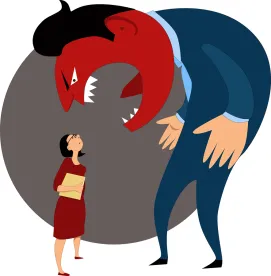In an unprecedented move and without taking into consideration the mass opposition from the private sector, on August 7, 2020, the Governor of Puerto Rico signed into law House Bill 306 to prohibit workplace bullying. This law goes into effect immediately.
Under the new law, employees in the public and private sector have a cause of action for conduct the law classifies as workplace bullying. Aggrieved employees would be entitled to remedies greater than those under local anti-discrimination statutes.
In addition, government and private sector employers, among others, must adopt policies and protocols advising employees about their rights under this new law. Employers must prohibit all forms of harassment and bullying in the workplace and provide mechanisms to address and investigate internal allegations. Unlike other employment law claims, an employee needs to exhaust both internal remedies with the company and external remedies with the Alternate Dispute Resolution Bureau of the Judiciary through a mediation process as a prerequisite to filing a lawsuit in court.
House Bill 306 goes as far as providing that the immunity for workplace injuries will not apply when it is determined that the condition suffered by the employee was prompted by a pattern of workplace harassment. House Bill 306 is unclear on which entity (i.e., a court or the State Insurance Fund) will make that determination. However, once that determination is made, the State Insurance Fund will have a cause of action against an employer to recover expenses incurred in providing treatment to the employee.
Even though the Puerto Rico Unjust Dismissal statute, Act 80-1976, recognizes a cause of action for constructive discharge when an employee is subject to arbitrary, unreasonable, and capricious actions of the employer that cause a hostile work environment, employees do not have to resign to be covered under the new law.
The law provides examples of what will be considered unlawful harassment, and it requires that the totality of the circumstances be considered. In general, the prohibited conduct is defined broadly as malicious conduct that is unwanted, repetitive and abusive, arbitrary, unreasonable or capricious, not related to legitimate business interests, and that infringes on constitutionally protected rights, such as the protection against attacks to the employee’s reputation or private life, among others. The prohibited conduct can be verbal, written, or physical. Some of the examples provided range from disregarding, in a humiliating way, an employee’s work-related opinions or ideas to imposing multiple disciplinary actions that are determined to be reckless. In short, how performance or disciplinary issues are handled or whyadditional tasks are assigned to employees is what is going to potentially trigger a claim under the new law.
The law also recognizes that opposing, denouncing, or participating in investigations related to workplace bullying will be considered protected activity under the Puerto Rico Anti-Retaliation statute, Act 115-1991.
The Puerto Rico Department of Labor will issue regulations and guidance within 180 days of the enactment of the new statute, or by February 3, 2021.
Employers in Puerto Rico have to revise policies and provide extensive training to managers and supervisors to reduce risks. Please contact a Jackson Lewis attorney with any questions about the





 />i
/>i

